Point-of-care ultrasound (POCUS) is the future of bedside medicine. It has value for every medical professional that performs a physical exam.
See Your Patients in a New Dimension
Like all clinical skills, becoming truly proficient at POCUS takes hundreds of hours of learning, mentorship, and practice. Why invest your valuable time in becoming a confident POCUS practitioner? Because it will make you a better clinician!
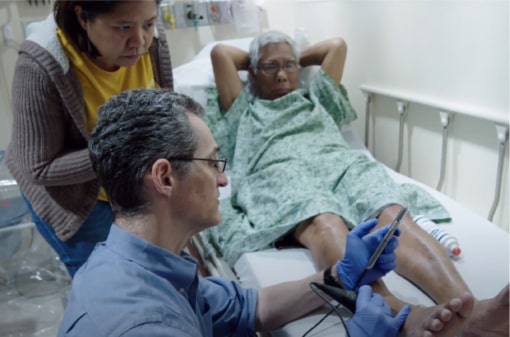
POCUS is a powerful tool for health equity and global health.
- It’s portable and handheld (and POCUS practitioners are self-sufficient)—these traits are essential for practicing in low- and middle-income countries.
- It builds trust by inviting patients to participate in shared decision making and diagnostic understanding(citation).
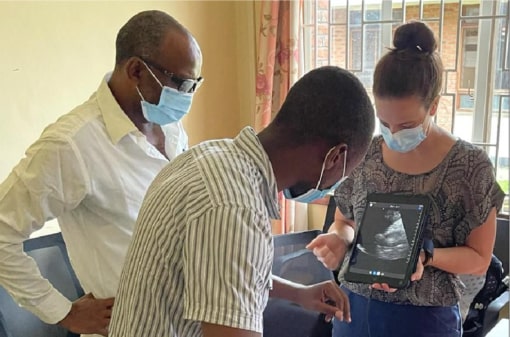
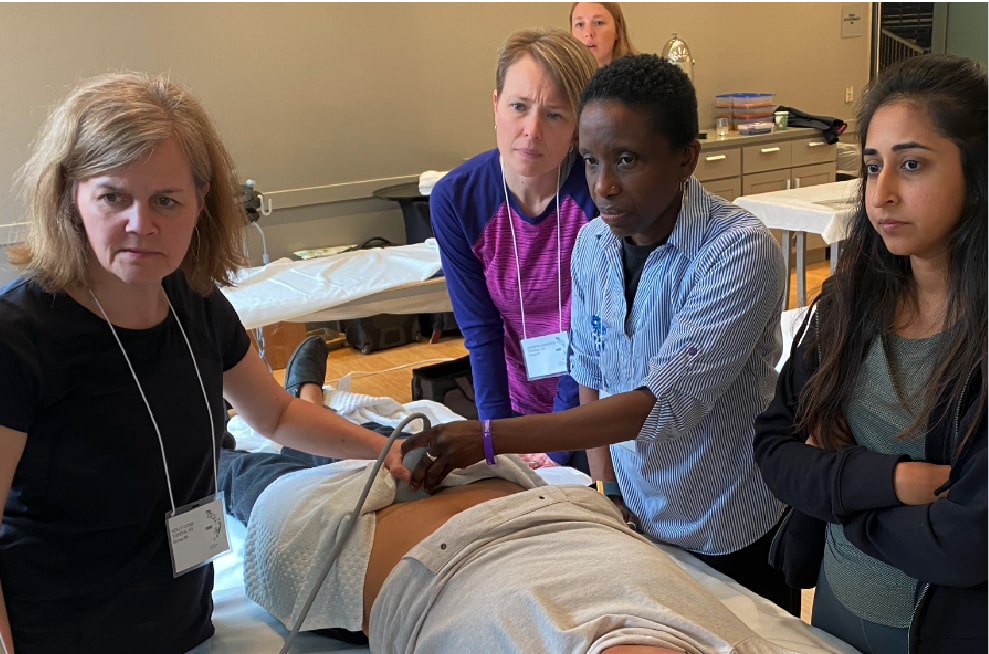
Becoming proficient in POCUS is empowering.
- The diagnostic imaging process is entirely in your hands.
- It allows you to see inside the body in real time.
- It gives you more quality time at the bedside.
- It can give you greater confidence in your diagnoses and your effectiveness as a clinician.
POCUS is the future of medicine.
- POCUS is rapidly becoming a standard of care across specialties. No matter what your speciality is or where you are in your career, gaining proficiency in POCUS is important for your growth as a medical provider.
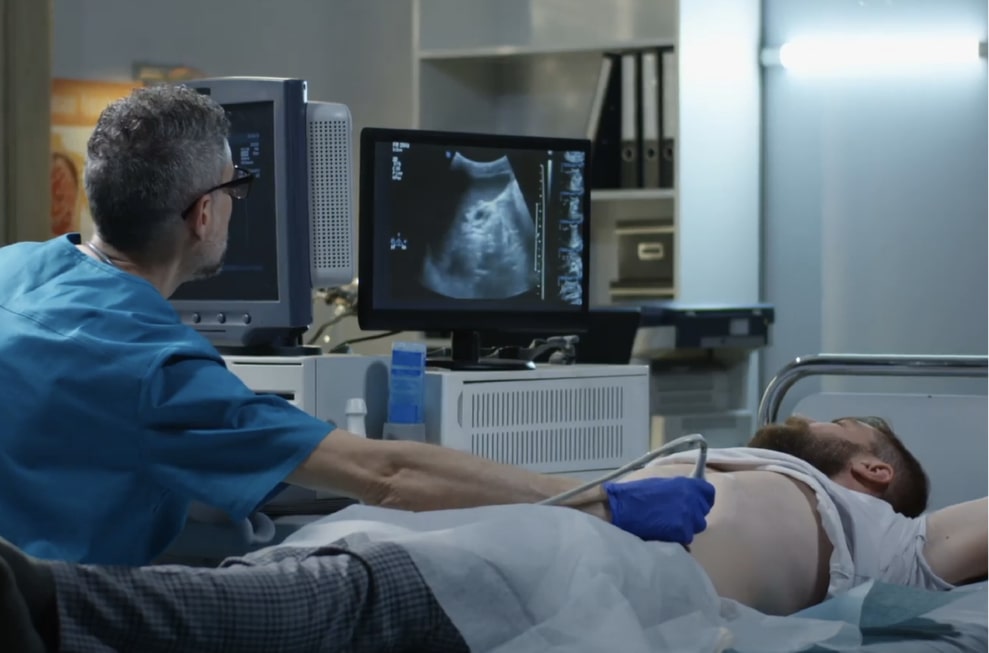
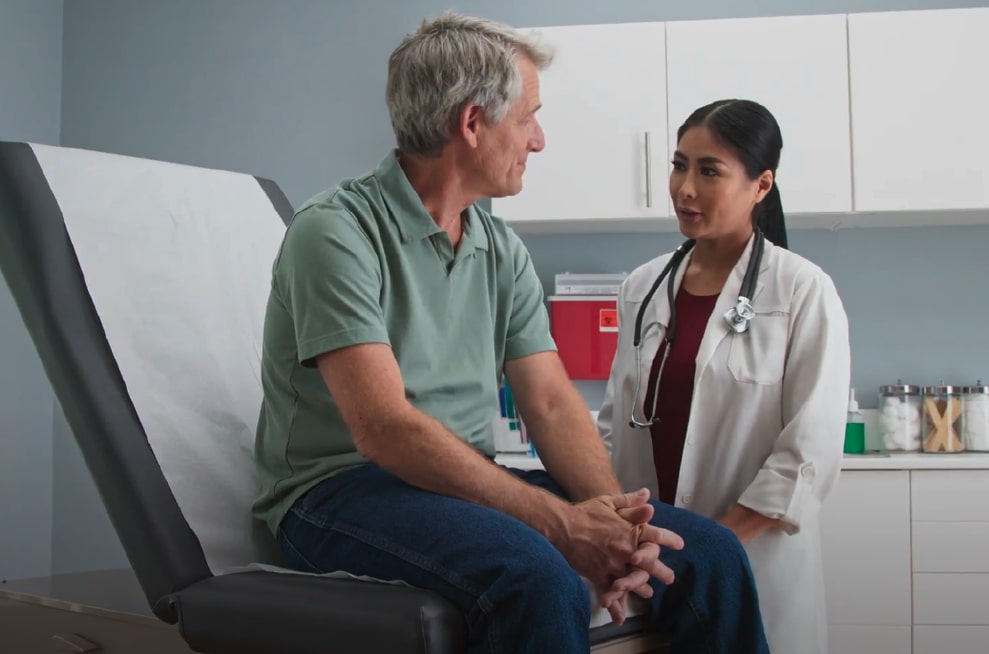
POCUS supports value-based care.
- It is eligible for billing and reimbursement.
- It can help improve patient outcomes (citation).
- It can help improve patient satisfaction (citation).
- It can contribute to more efficient resource utilization (citation).
- It can reduce exposure to ionizing radiation (citation).
- Ultrasound-guided procedures can enhance patient safety (citation).
Ready to Advance Your Medical Practice?
- Built by clinicians, for clinicians
- Backed by global POCUS training experience
- Trusted by providers across over 60+ countries
